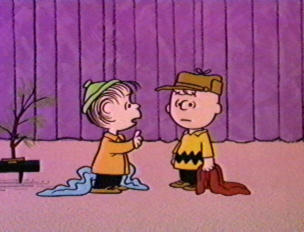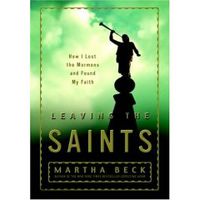After experiencing being
thrown together in a dorm with a buddy and a lot of strange characters during my freshman year of college, an entirely new experience awaited me for my sophomore year. I knew a lot of people were either moving out of our dorm or dropping out of school entirely. And I knew that my roommate wouldn't be back either, meaning that I would be living with someone new. Maybe it would be someone I already knew from the dorm. Nah! The university would never do that. They'd much rather put a freshman in with an "upperclassman" to help with the newbie get accustomed to college life. This put me at quite a disadvantage because I had plans for the dorm room, and I didn't want some freaky freshman messing it all up. I was ditching my bed in favor of a fold-out couch, and that is generally something I'd check with a roommate about. But on move-in day, I had no choice. So up the elevator and around the stairs I came, hauling a 50-ton, ugly red plaid, sleeper sofa to my room, wondering who would be waiting for me when I got there.
The dorm rooms all had posters with names on the doors to help everyone get to know everyone else. When I made it back to room 404, I could see that the name "Ed" was printed there.
"Well, at least they didn't move me out of my own room," I thought to myself, somewhat sarcastically.
As I got closer, I could see the other name on the door. Ed. My roommate and I already shared the same name. Not to mention the same initial of our last names. I stood in the doorway and looked in to see a 17 year-old face sitting in a chair, looking through some papers.
"Hi, Ed. I'm Ed."We were simply thrown together at random. Unless perhaps some people in Student Housing thought they were making a funny joke by putting "their Eds together!" OK, maybe not a
funny joke, but you get the picture. Still I wondered why the two of us were cast into the same room. Apparently, Someone knew that this would be a good thing.
It was amazing how similar the two of us were. Aside from the whole name thing, we shared the same off-center sense of humor. Our birthdays were only five days apart. We each were dating redheads (at the beginning, anyway). We were both small town kids, although he was from Southern Indiana, while I was from the northern part of the state. Perhaps because of all this, we understood each other well.
The shared name became a gimmick for us. When someone would call, "Ed!" we would both answer. Even if we knew the person was yelling for the other Ed. Especially if we knew the person was yelling for the other Ed. It didn't take long for the guys on our floor to figure out that they needed to distinguish between the two of us in some other way. Our last names were too similar, so they eventually dubbed me "Big Ed" and my roommate as "Lil' Ed". Ed wasn't that little, but next to me he was. Hence the spelling, Lil' instead of Little. Besides his father was named Ed, so he was used to be Little Eddie or things like that. Soon after meeting, Big and Lil' (or the Eds as we were sometimes called) became fast friends.
I don't want to give the impression that we were mirror images of one another. I was Protestant, while Lil' was Roman Catholic. He liked to drink on the weekends, but I didn't. I introduced him to George Carlin and the Smothers Brothers. He refamiliarized me with Monty Python and Cheech and Chong. He danced with a German dance troupe, complete with lederhosen. I, uh, didn't. We respected one another's differences. We had each other's back.
And we played off one another flawlessly. One of our favorite pastimes was going to a weekend party and making up stories to fool other people. In 1982, every college party had a television tuned to MTV and there would always be girls (sometimes well on their way to being intoxicated) watching the videos. One popular clip was a John Cougar video where the singer's hair hung over one of his eyes. Without fail, one of the gathered women would burst out with,
"Why can't he pull his hair away from his eyes?!"So one night, Lil' gestured with the beer in his hand and said,
"He wears his hair that way because he's blind in that eye.""Really? You're kidding!" the girls would exclaim.
I'd was right there with him, taking a drink from my can of Pepsi.
"Yeah, Lil's right. He had an accident when he was a kid. I think it was a small branch of a tree that poked him in the eye."Lil' picked up on my cue.
"Well, it wasn't just that he got poked, but the eye almost came out.""That's true. I hear he can kind of see shadows out of that eye, but it messes up his vision, so instead of wearing an eye patch he just comes his hair over that eye."We would go on for 15 to 20 minutes before the two of us would walk away, stifling our laughter. The story varied from party to party. Sometimes it was a stick, other times running with a pair of scissors was the culprit. Once we told them he had been scratched in the eye by a cat. It got to the point where we had to send the rest of our friends away when we started the John Cougar story because they got to laughing too hard for us to be believable!
It was odd knowing someone well enough to be able to finish one another's sentences, yet at the same time be able to see a different perspective. It was odder still that this was a person I was simply thrown together with by a Student Housing chart.
Lil' Ed and I roomed together for a year and a half in the dorm, then the two of us and two other friends rented a house off campus. Eventually the Eds shared living quarters for four years, including a year after I got my B. S. degree from B. S. U. He moved to the Dayton, Ohio area. I took a job in Michigan. We remained close, although it was much different than when we lived together. When I got married, Lil' Ed was my best man. About two years later, it was Lil' making wedding plans with a wonderful woman that my wife and I liked very much.
Then on a Saturday afternoon in the hills of Southeastern Ohio, Lil' Ed was on his way back from a dentist appointment on his motorcycle. Rounding an upcoming curve was a delivery truck, but the driver couldn't stay in his own lane. Ed tried to get past, but the truck continued to drift until he struck the motorcycle head on. Lil' Ed was killed instantly.
That was fifteen years ago. It was just months after my wife and I had lost our first son and only weeks since my grandmother had died. It was like death was a familiar visitor for us. I had lost someone younger and someone older, but this time it was someone of my own generation... someone so much like me. Already dealing with the Lord's call upon my life while grieving a son, He really had my attention now.
It was so empty as we carried Ed's casket out of the little Catholic church while a tape played John Cougar Mellencamp's song, "
Small Town".
Well I was born in a small town
And I can breathe in a small town
Gonna die in this small town
And that’s prob’ly where they’ll bury me.
And we did.
Here was a man who came into my life as a complete stranger and became closer than a brother. We shared our hopes and our problems. We almost never fought although we didn't have the same opinion on everything. We came together from two different regions with remarkably similar backgrounds. And we remained friends until the end, even though the distance made it tough. We were just thrown together in a dorm room. But God used that relationship in both of our lives to bring us closer to Him.
God throws us together with all sorts of people every single day. Some pass through our lives quickly. Others stay a bit longer. Still others never leave. Then there are those who are gone, but not forgotten. I thank God for each person he's put in my life. Not all of them have the influence of a best friend or a spouse. Some may be no more than a voice on the radio or a face passing on the sidewalk. But make no mistake, God has blessed us with the people around us. Some may be an inspiriation or encouragement to you. Others are there allowing you to learn from their successes and failures. Another group may be there for you to be the example; the encouragement. But there's something about those very special people who teach and support you as you teach and support them. Those people are a heavenly gift no one can fathom.







